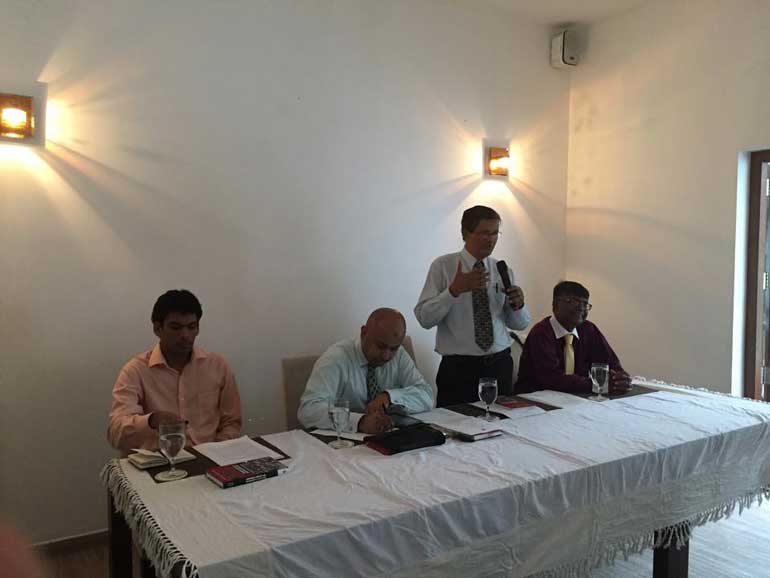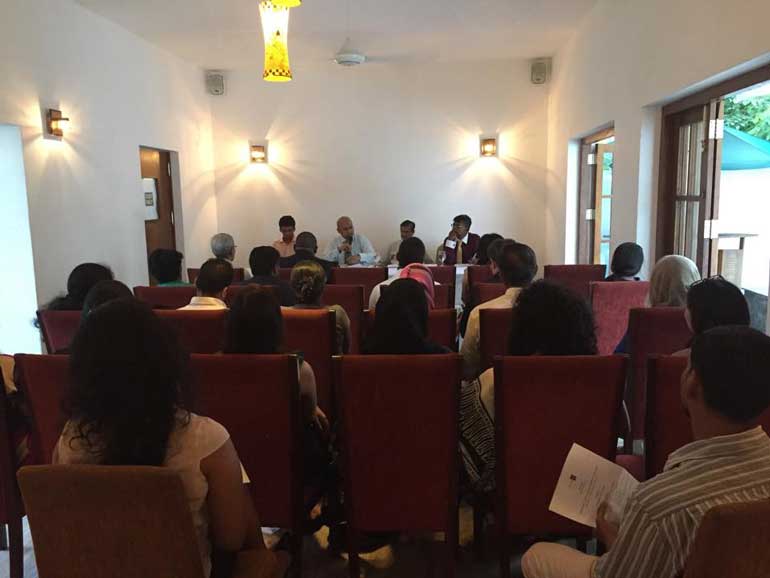Saturday Feb 21, 2026
Saturday Feb 21, 2026
Saturday, 15 August 2015 00:00 - - {{hitsCtrl.values.hits}}


International Alert Sri Lanka hosted a panel discussion on 4 August on understanding the nexus between governance, conflict and development in South Asia to introduce the recent SAGE publication ‘Governance, Conflict and Development in South Asia: Perspectives from India, Nepal and Sri Lanka’ edited by Prof. Siri Hettige and Prof. Eva Gerharz.
The volume examines how various forms of governance have emerged in South Asia after colonialism, and the developmental and conflict-related challenges the region faces. Drawing from the contexts of India, Sri Lanka and Nepal, it highlights the degree of institutionalisation of democracy. The book further points to the manner in which shortcomings in governmental arrangements intersect with the prevalence of conflict at the national as well as sub-national levels. It showcases that democratic and more authoritarian cultures have influenced developmental successes and failures, and reveals how (external) interventions and policy reforms in the name of development have led to diverse outcomes in different South Asian countries.
Moderating the discussion, International Alert Program Manager Amjad Mohamed Saleem remarked, “The lessons from the book show that South Asia seems to have similar challenges with regards to governance, development and conflict.”
Opening the discussion, University of Colombo Senior Professor and Chairperson of Sociology Prof. Hettige discussed the nexus and co-dependency between development and governance but also the negative impact that conflict has in regard to these two areas.
Verite Research Politics Research Team Leader Janeen Fernando provided a critical review of the book. He noted that one of the dominant divide for development is the discussion between a utilitarian approach to development and a participatory approach. He further highlighted, “The empirical data demonstrates the dramatic changes Sri Lanka went through over the past few decades; especially in regard to migration.” It is noteworthy for example that whilst in 1976 only 529 citizens migrated overseas, 57,000 left the country in 1981.
In his remarks, Prof. Rajiva Wijesinha emphasised on the importance of conducting consultations in regard to developing policies pertaining to governance and development. “These systems of consultations and mechanisms for implementation must be entrenched through statutory requirements in order to ascertain transparency, as well as sharing of information,” remarked Prof. Wijesinha.
Discussions with the audience stressed the importance of local government, liberalisation and nationalisation of the state sector, among other topics.